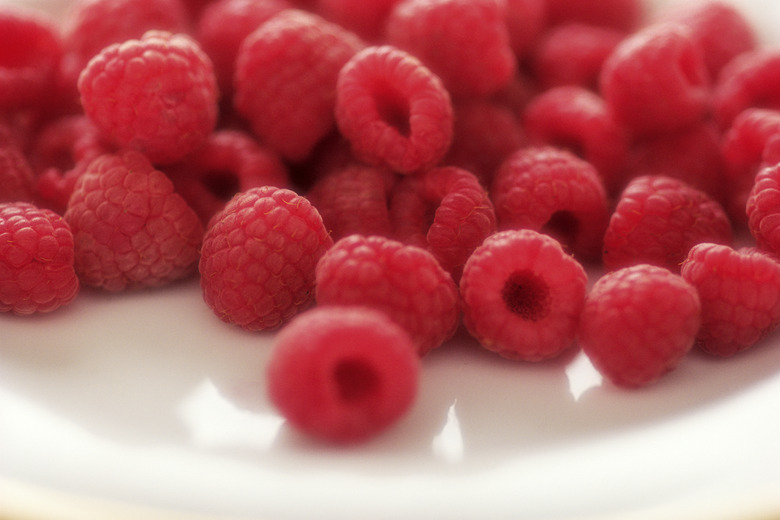Raspberry Plant Adaptations
Raspberries (Rubus spp.) are one of the most popular additions to the perennial edible garden. Their juicy, jewel-toned fruits and easygoing natures make them tolerant plants for even the busiest gardeners. In addition to their berries, they provide fragrant flowers and visually appealing canes.
Raspberries (Rubus spp.) are one of the most popular additions to the perennial edible garden. Their juicy, jewel-toned fruits and easygoing natures make them tolerant plants for even the busiest gardeners. In addition to their berries, they provide fragrant flowers and visually appealing canes. They have several adaptations that help them survive and have contributed to their place in the home garden.
Climate
Raspberries are a cool-season fruit. Their hardiness range varies, but common choices such as "Bristol" (Rubus "Bristol") and "Taylor" (Rubus idaeus "Taylor") are winter hardy in U.S. Department of Agriculture plant hardiness zones 4 through 8. Species types such as flowering raspberry (Rubus odoratus) are more winter hardy, thriving in USDA zones 3 through 8. Others, such as "Royalty" (Rubus idaeus "Royalty"), are less summer-heat hardy; its southern limit is USDA zone 7.
- are one of the most popular additions to the perennial edible garden.
- Others, such as "Royalty" (Rubus idaeus "Royalty"), are less summer-heat hardy; its southern limit is USDA zone 7.
Thorns
Thorns are a characteristic adaptation of plants in the rose (Rosaceae) family. They make stems and leaves less desirable to animals that might otherwise eat them and help the plant set flowers, fruit and seed in peace. Although they usually avoid eating things with prickles, animals such as rabbits or deer that are having a hard time finding a meal elsewhere may eat raspberry canes. When ripe, a raspberry cane's soft, edible fruit are easily within reach and safe from the prickly thorns.
Edible Fruit
Edible fruit is one of the biggest adaptations of flowering plants. Having edible fruit, which always contains seeds, ensures that hungry animals will carry those seeds somewhere else, usually after a softening phase within the digestive tract of the animal that has eaten them. When the seeds are excreted, they have not only been prepped for germination but also are planted with a ready-made fertilizer source. This also means that you have to compete with birds and critters for your crop, so put netting around your berries if predation is a problem.
- Thorns are a characteristic adaptation of plants in the rose (Rosaceae) family.
- This also means that you have to compete with birds and critters for your crop, so put netting around your berries if predation is a problem.
Suckering
Raspberries reproduce by sending up new canes, or suckering, every year. Most raspberries produce berries on second-year canes, though a few can produce fruit at the end of their first growth season. Some raspberries, such as "Royalty," produce fruit well but do not sucker effectively. This can mean that if you purchase and plant raspberries with large yields, you may need to replace the plants somewhat more often than others. After two years, remove spent canes to make room for younger ones.
